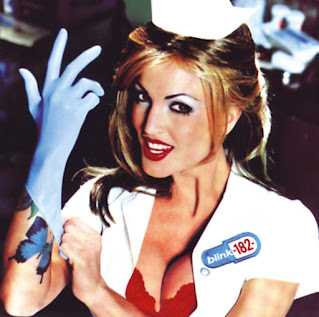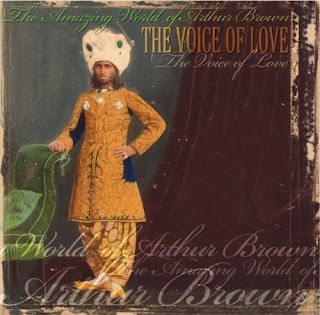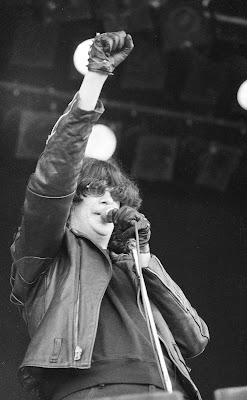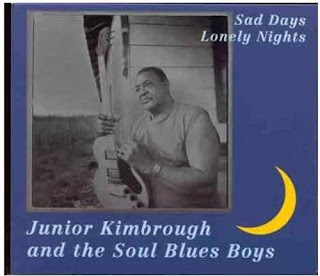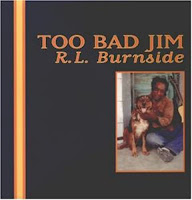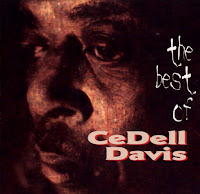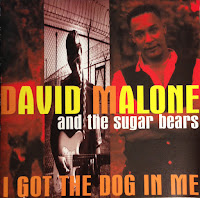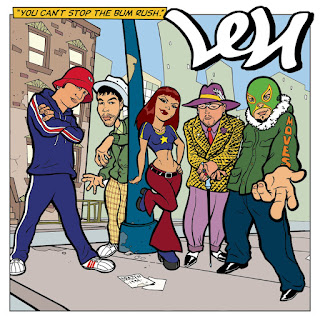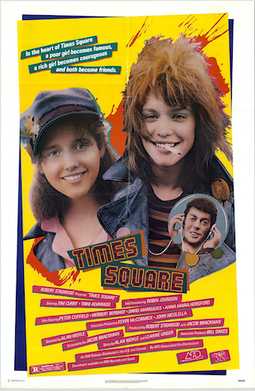BLINK 182
Enema of the State
There are those who say that punk is dead, crushed beneath the contradictions of the genre’s underground status and its commercial aspirations. Then there are others who say that punk’s still alive, bubbling beneath the mainstream while it gets back to its “roots.” Although I don’t know which side of this discussion to come down in favor of, I suspect that punk’s more alive than dead. The thousands of kids who lined up to shell out their hard-earned coin for a copy of Blink 182’s Enema of the State during its first week of release, placing the disc in the Billboard “Top Ten,” might agree with me. Blink 182 are unabashed punks, Enema of the State delivering its thrills in the form of punky power pop cranked out in a vein similar to Green Day or Offspring. The by-product of hundreds of shows in front of crowds of various thrashers, skate punks and hardcore wannabes, Blink 182 has honed their sound to a surgical edge. Songs like “Aliens Exist,” “What’s My Age Again?” or “Anthem” cut to the bone, showcasing more teen angst and sexual frustration than you can shake a stick at. Enema Of The State doesn’t break any new ground, nor will it be mistaken for any great work of art. It rocks, though, and sometimes that’s enough… (MCA Records)
ALEJANDRO ESCOVEDO
Bourbonitis Blues
Through his 1980s work with Rank & File and the True Believers, Alejandro Escovedo has become a sort of “spiritual godfather” to the whole alternative, “no depression” insurgent country movement. To be honest, though, his solo work has always seemed to me to be closer to the sort of left-handed, wrong-side-of-the-tracks, introspective rock ‘n’ roll as practiced by Tom Waits. Passionate, troubled, insightful, and highly personal, Escovedo’s best material will always leave you ducking for emotional cover. Bourbonitis Blues does nothing to shake this illusion. A fine collection of songs, Escovedo’s musical and lyrical milieu as showcased by Bourbonitis Blues is nevertheless a somber, sobering artwork. That’s not to say that Escovedo is incapable of creating great beauty – “Irene Wilde” is a wonderfully moving and bittersweet tune, while “California Blues” is a spry tale of life on the road. Escovedo blends elements of roots rock and country with folkish lyrics and a little blues around the edges to create a heady musical elixer that is as authentic as it is sincere. A singular, visionary work, Bourbonitis Blues probably isn’t for everybody. But if you like a musical challenge that is full of life, intelligence and nuance, then you owe it to yourself to discover Alejandro Escovedo. (Bloodshot Records)
GORDON
Gordon
Britpop never really grabbed the imagination of American listeners on the same level as it did in the homeland. Of all the genre’s practitioners, only Oasis managed to crack the tough nut that is the U.S. market while also-rans like Blur, Pulp, Dodgy, and others have to be content with cult followings and a modicum of stateside critical acclaim. Although the music – itself inspired by 1960s “mod” acts like the Kinks or the Who – never caught on in the same way as, say, the Backstreet Boys, that isn’t to say that it wasn’t influential. Witness Gordon, who hail from Southern California and sound like as earnest a bunch of anglophiles as you’re likely to hear, with self-titled debut sounds more British than many of the Queen’s subjects. Gordon, the album, is a charming and lively collection of pop/rock tunes that offer witty lyrics, catchy hooks and, well, just a refreshing lack of either pop pretensions or rock ‘n’ roll gloom. There are several radio-ready cuts here that would make great listening on a summer’s day, songs like the hilariously-optimistic “Could Be Worse” or the thoroughly engaging “Fortified Grapes”. Producer Brendan O’Brien adds his usual deft touch to the material, creating an open atmosphere for the band’s lush arrangements and delicious harmonies. Perhaps the best British band to ever come out of the United States, Gordon is worth checking out. (FiftySeven Records/Sony 550 Music)
MIKE NESS
Cheating At Solitaire
As frontman for Social Distortion, one of the more revered punk outfits to ever crash a stage, Mike Ness garnered a reputation as a fierce six-string player and no-nonsense performer. With an image that was equal parts snarling punk and surly tattooed greaser, Ness brought a fair degree of attitude and charisma to the role. Even a band as respected as Social D has its limitations, however, which is why Ness has stepped out into a new role as solo performer with Cheating At Solitaire. Bringing to the forefront some of the artistic influences that had crept into Social D’s latter day material, Ness has expanded his musical vocabulary to include influences as diverse as Hank Williams and Bob Dylan.
Ness gives up none of the energy or passion that he’s known for, however,
Cheating At Solitaire nonetheless making a good effort of stepping away
from Social Distortion’s legacy with songs like the western-flavored “Rest of
Our Lives” or the bluesy “No Man’s Friend”. Ness is a brilliantly visual
songwriter – that is, he paints his lyrics with vivid imagery and phrasing in
telling his tales of crime and debauchery, hope and betrayal, love and loss.
Although showing a degree of uncertainty, covers like Dylan’s “Don’t Think
Twice” or the classic “Long Black Veil” are still played with no small amount
of respect and empathy for the material. There are even a number of guest
appearances here, including nods by Bruce Springsteen, Brian Setzer and Billy
Zoom. As a first solo effort, Cheating At Solitaire does not
disappoint, calling on Mike Ness’ punk roots even as it strikes out into
uncharted musical territory. It’s a strong first step that will leave the
listener waiting eagerly for the next Ness album. (Time Bomb Recordings)
VARIOUS ARTISTS
No Boundaries
A recent poll showed that only about 25% of the American people
followed the war in Kosovo on a regular basis. Although I won’t get into the
ramifications of this tragic indifference towards what is a travesty of
American foreign policy, I will say that I’m glad that there’s some folks
among that small percentage who actually care about the toll being paid by the
average person in the former Yugoslavia. No Boundaries is a benefit
compilation created by some of those people who do care, musicians who have
donated their time and artistic efforts to try and make a difference. Proceeds
from the disc go to organizations like CARE, Oxfam America, and Doctors
Without Borders that are providing humanitarian relief in Kosovo. It doesn’t
hurt that the cause that there’s a lot of powerful music here, either. Pearl
Jam open and close the disc, Eddie Vedder lending his unique vocals and rock
star presence to an unlikely pair of covers: the sixties chestnut “Last Kiss”
and Nashvillian Buzz Cason’s vintage “Soldier of Love.” Vedder and PJ pull off
the effort, bringing a resonance and passion to the popish material that
seemed beyond the band’s ability. There’s other good stuff here, too,
including cuts from Rage Against The Machine, Tori Amos, Indigo Girls, KORN,
and Black Sabbath, among others. For the collector in all of us there’s a
number of previously unreleased tracks and obscurities on
No Boundaries, including inspired live performances from Neil Young,
Alanis Morissette and Sarah McLachlan. No Boundaries is a solid musical
compilation and an important fund-raising effort, showing the power of rock
‘n’ roll to change lives. (Epic Records)

